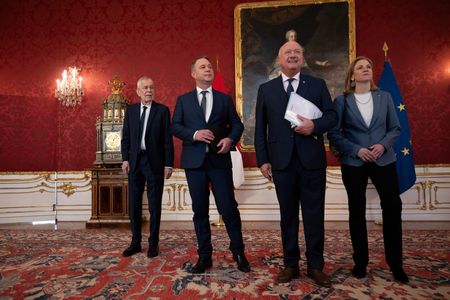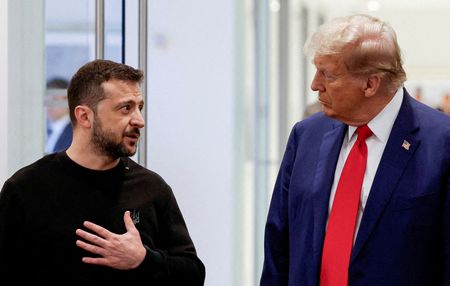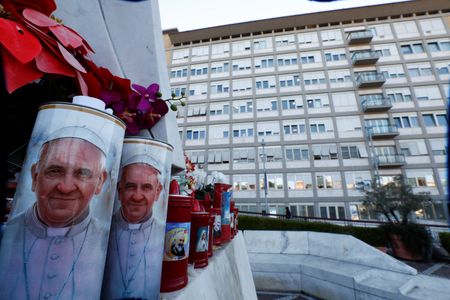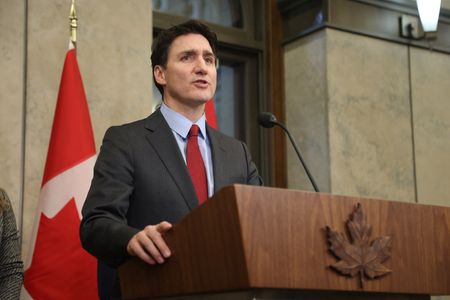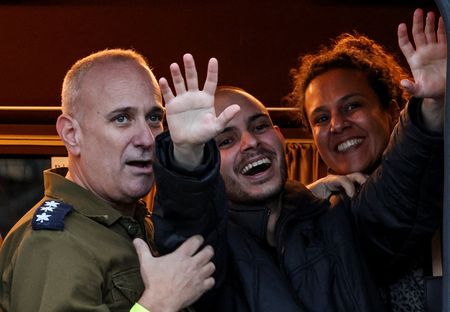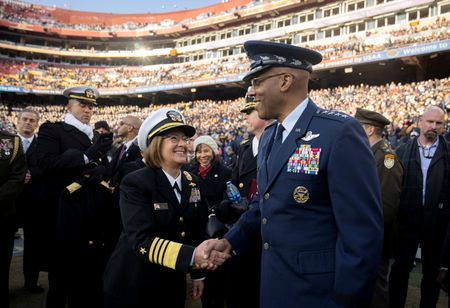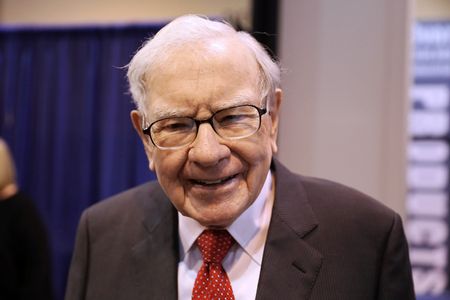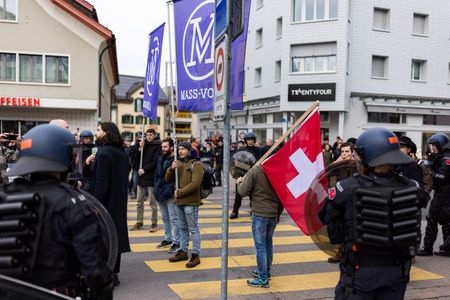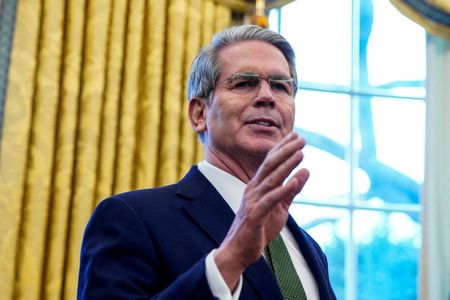By Francois Murphy
VIENNA (Reuters) -The three biggest centrist parties in Austria’s parliament on signalled on Saturday they were close to agreeing on a coalition government, almost five months after an election won by the far-right Freedom Party (FPO), which is now sidelined.
A deal between the conservative People’s Party (OVP), Social Democrats (SPO) and liberal Neos would bring to an end the longest wait for a new Austrian government since World War Two.
“I am very confident that in the common ground that we have found, we will manage to finalise a coalition government agreement,” OVP leader Christian Stocker said in a statement to the media alongside his fellow leaders.
There have been tortuous efforts to cobble together a coalition since the FPO, led by Herbert Kickl, for the first time won a parliamentary election in September with 29% of the vote, but fell well short of a majority.
A deal would yield Austria’s first three-party government since 1949 and likely catapult Stocker into the chancellery weeks after he was hastily handed the OVP reins when former party leader and chancellor Karl Nehammer stepped down.
The long wrangle underscores the difficulty many Europeans countries have faced in forming stable governments while parties on the far right such as the eurosceptic, Russia-friendly FPO gain ground, fuelled by concern over weak growth and immigration.
The FPO was initially frozen out of coalition negotiations after the election, but an initial attempt by the OVP, SPO and Neos foundered in early January, allowing Kickl to step in.
Kickl then tried to negotiate a coalition with the OVP. But five weeks later those talks too collapsed. The FPO now wants snap elections and renewed its attacks on what it calls a “coalition of losers” after Saturday’s announcement.
U.S. CONCERNS
Stocker was speaking at President Alexander Van der Bellen’s office with SPO party head Andreas Babler and Neos leader Beate Meinl-Reisinger after they briefed the president.
Babler said the three were ready to enter the final phase of discussions, sentiments echoed by Meinl-Reisinger.
“We’re on the home stretch; we’re not over the line yet, the willingness is there,” Meinl-Reisinger said.
The political limbo has hit Austria after two years of negative economic growth, and Van der Bellen urged the parties to reach an accord, pointing to frictions between Europe and the U.S. since the return of President Donald Trump.
“The coming years will be difficult,” said the 81-year-old Van der Bellen, a former leader of Austria’s Greens. “Not only because of the economic situation, but also because of the geopolitical situation.
“Certainties that have existed for decades about the relationship between the United States of America and Europe have become fragile within a matter of weeks. Europe needs to be active, Europe needs to stand together.”
(Reporting by Francois Murphy and Dave Graham; Editing by Andrew Cawthorne)

